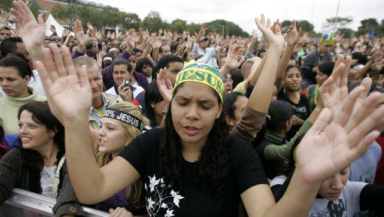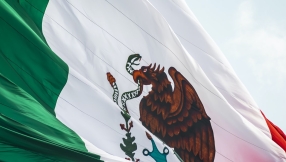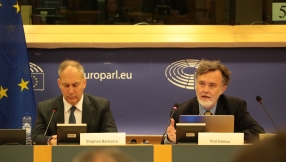
A new survey shows that despite the ascension of the charismatic Argentine Pope Francis to the Holy See, Catholicism in Latin America is still on the decline.
Chile-based pollster Latinobarometro released data on Wednesday showing that only 67 per cent of Latin Americans identified as Catholics in 2013, compared to 80 per cent in 1995.
Speaking to Reuters, Latinobarometro said: "In the recent data we don't see an impact in the number of Catholics following the arrival of Pope Francis at the head of the Church."
However they qualified the statement, saying that it was too early in the new pontificate to detect new trends in things like church attendance or religious affiliation.
One area that has seen improvement though is trust in the Church among Catholics. In 2013 approximately 78 per cent of Catholics said they trusted the Church, compared to 69 per cent in 2011.
Over that same period, Reuters reports that trust in the evangelical Protestant church in Latin America also increased.
"Latin Americans embrace another religion when they abandon Catholicism," Latinobarometro said.
Vibrant and energetic services have been attracting large numbers to charismatic evangelical Protestant churches, a stark contrast to the more traditional and sombre style of service seen in most Catholic churches.
The survey reported that one in five Brazilians now identify as evangelicals.
Speaking to Christian Today, the director of Latin American Mission for the Church Missionary Society, Henry Scriven is not surprised a livelier church style is bringing people through the door.
"There is a side Latin American character that makes them appreciate a good party," he said.
Mr Scriven said the Anglican Church in Chile was "one of our strongest churches" and has been acting as "a kind of bridge church between the more fundamentalist evangelical Pentecostals, and the Catholics".
Mr Scriven said Pentecostal evangelicals were "flourishing" but he also sounded a note of caution because some are making promises that may not be borne out in real life.
"There is a lot of the prosperity Gospel preachers in that situation, coming down from the US and promising riches and all that sort of thing. That is very attractive, but they don't always deliver," he said.
Although most Latin American countries continue to increase in religiosity, there is a noted trend of secularism in some countries.
Chile and Uruguay, two of Latin America's more prosperous and stable countries, are seeing an increase in secularism.
A 2013 survey from the Pontifical Catholic University of Chile found that 18 per cent consider themselves either atheist or agnostic. In the 2006 Uruguayan National Survey of Extended Households, 40 per cent of people listed themselves as non-religious.













